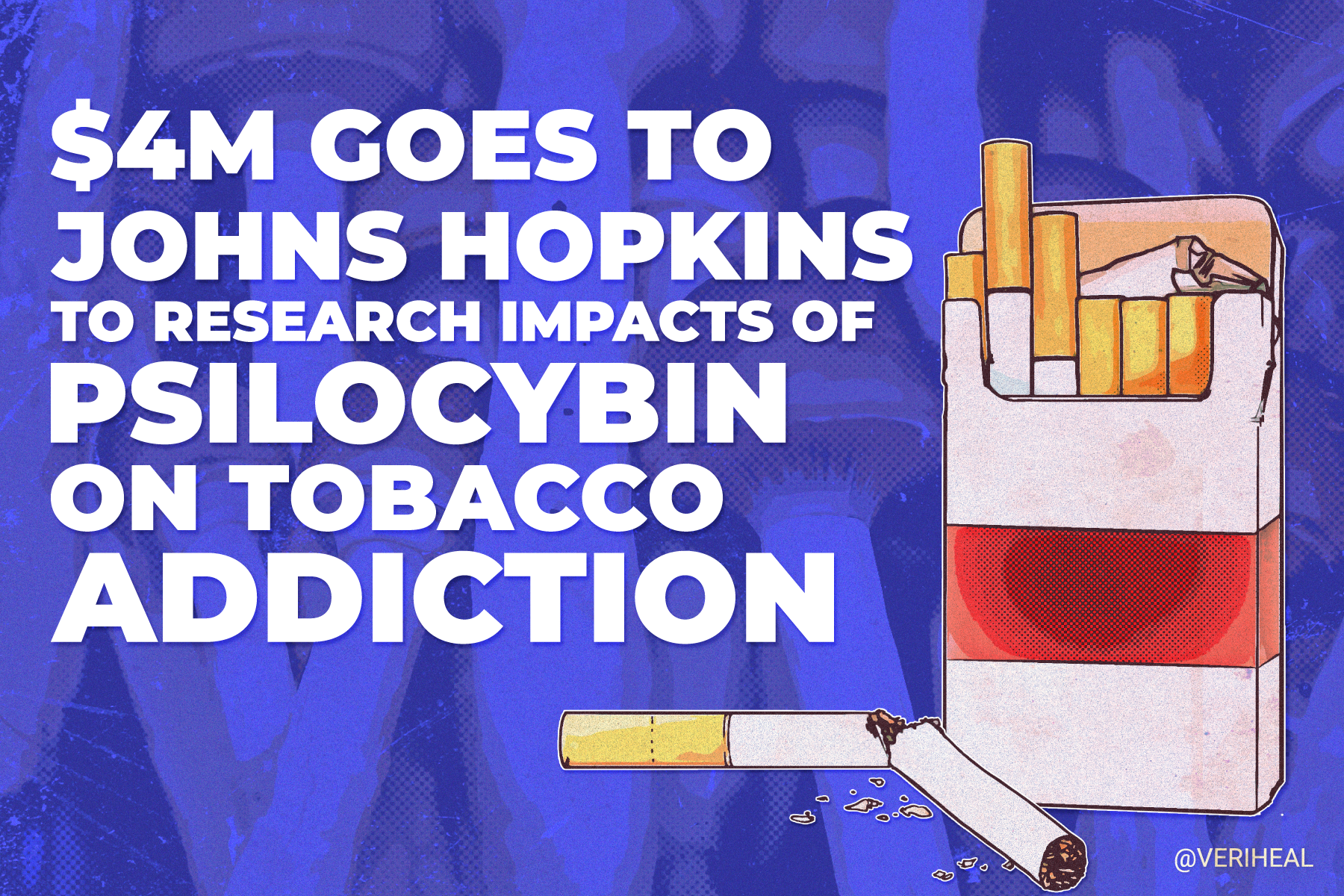Veriheal does not support illegally consuming therapeutic substances such as psilocybin but acknowledges that it transpires because of the current illicit status, which we strive to change by advocating for research, legal access, and responsible consumption. Always consult a physician before attempting alternative therapies.
For the first time in over 50 years, a federal grant has been allocated for studying psychedelic treatment. The National Institutes of Health (NIH) awarded Johns Hopkins Medicine $4 million to investigate the therapeutic potential of psilocybin, particularly on tobacco addiction.
Johns Hopkins Medicine will work in collaboration with the University of Alabama at Birmingham and New York University to diversify the pool of participants for the multisite, three-year study. This wide-ranging study is set to run simultaneously across the three institutions under the principal investigator, Matthew W. Johnson, Ph.D. “The historical importance of this grant is monumental,” said Johnson.
Meet the Head Expert
Johnson is a professor in psychedelics and consciousness in the department of psychiatry and behavioral sciences at Johns Hopkins University. As one of the world’s most published scientists on the human effects of psychedelics, Johnson was an obvious selection for the position of principal investigator. He has also conducted seminal research on the behavioral economics of drug use, addiction, and risk behavior.
Johnson’s work with psychedelics began back in 2004, according to the Johns Hopkins website. In 2008, he published psychedelic safety guidelines. His research into psychedelics primarily centered around psilocybin—the hallucinogen found in magic mushrooms—but Johnson also dabbled in research with other psychedelic substances. He conducted the first blinded human research study into the psychoactive effects of salvinorin A in 2011 and published data on MDMA pill testing services in 2017.
In 2014, he developed and published the first research on psychedelic treatment of tobacco addiction. This pilot study included 15 participants who had smoked 19 cigarettes a day for 31 years on average and had failed to drop the habit. After receiving multiple doses of psilocybin across many weeks, 80% of the participants were able to quit smoking—an astounding rate of success compared to typical smoking cessation trials that only see 35% success rates on average with drugs like varenicline.
Why You Should Get Your Medical Marijuana Card
Veriheal has satisfied millions of patients nationwide by giving them access to these benefits
- Larger purchase limits
- Peace of mind
- Enhanced legal protection
- Access to higher potency strains
- Save up to 25% on cannabis purchases
- Skip the line at the dispensary
The Government Gets Involved in Psychedelics
With so much previous data to support the therapeutic potential of psychedelics, a comprehensive study into the matter has been long overdue. Johnson states, “We knew it was only a matter of time before the NIH would fund this work because the data are so compelling and because this work has demonstrated to be safe. Psilocybin does have very real risks, but these risks are squarely mitigated in controlled settings through screening, preparation, monitoring, and follow-up care.”
While the study is the first to be funded by the government in decades, it’s far from the first that’s been conducted in modern times. According to the press release announcing the study, there has been a “growing renaissance of research with classic psychedelics” over the last 20 years, and “these studies have been largely funded by philanthropy, resulting in impressive clinical findings for cancer-related existential distress, major depressive disorder, and substance use disorders.”
The NIH-funded study will be a double-blind randomized trial involving sessions with psilocybin as well as cognitive behavioral therapy, a type of psychotherapy focused on “pinpointing negative patterns of thought that can lead to behavioral and mental health problems.” The researchers hypothesize that psilocybin can help to “break the addictive pattern of thoughts and behaviors that has become ingrained after years of smoking, thus helping people to quit the habit.”
Tobacco Out, Psilocybin In
There’s no doubt about it: Tobacco addiction is bad news. Healthline explains that tobacco is one of the most widely used substances in the world and that it is highly addictive. According to data from The Centers for Disease Control and Prevention (CDC), tobacco causes around 7 million deaths worldwide per year, and 16 million are living with diseases caused by smoking. In addition, tobacco has been found to cause erectile dysfunction in males, increase the risk of tuberculosis, and cause problems in the immune system.
The CDC reports that in 2015, almost 70% of all adult smokers (22.7 million) said they wanted to quit smoking. Unfortunately, tobacco is easy to access and addiction is hard to curb. You are probably addicted to tobacco if you are (1) unable to stop smoking or chewing despite attempts to do so, (2) have withdrawal symptoms such as shaky hands, sweating and irritability, (3) feel the urge to smoke or chew after each meal and between activities such as after a meeting, (4) need tobacco to feel normal, (5) turn to it during times of stress, (6) give up activities in favor of smoking, and (7) continue to smoke despite health problems.
Unlike cannabis, tobacco is legal almost everywhere—and it’s hurting people. Luckily, alternative therapies like psychedelics hold promise for pulling users out of tobacco’s clutches. According to Johnson, “When administered after careful preparation and in a therapeutic context, psilocybin can lead to deep reflection about one’s life and spark motivation to change.” When the nicotine patches and anti-smoking medications aren’t doing the trick, it might just be time to explore psychedelics.
Author, Share & Comments
















